is University of Wollongong good?

View of the town of Wollongong, Illawarra in 1857
A Comprehensive Review of the University of Wollongong
Founded in 1951, the University of Wollongong (UOW) is a public research university located in the coastal city of Wollongong, New South Wales, Australia. The university started as a division of the New South Wales University of Technology, becoming an independent institution in 1975. Since then, UOW has grown into a network of campuses throughout Australia and the Asia-Pacific region.
From its modest beginnings, the University of Wollongong has established itself as an institution known for its innovative course offerings, research excellence, and unique learning environment. The University of Wollongong had an estimated 32,000 students enrolled across its campuses.
UOW boasts a strong range of programs but is particularly recognized for its courses in Engineering, Environmental Sciences, and Physical Sciences. According to the QS World University Rankings by Subject, these subjects are ranked among the top 200 worldwide.
For tuition, Australian students can expect to pay between AUD$6,000 to AUD$10,000 per year for most undergraduate courses.
International students, on the other hand, will generally pay between AUD$20,000 and AUD$30,000 per year, depending on the chosen course.
Living in Wollongong comes with its own costs. As a regional city, Wollongong has a lower cost of living compared to larger Australian cities like Sydney or Melbourne. Rent, groceries, and entertainment tend to be more affordable, which can make student life easier to manage financially.

Gleniffer Brae Manor House, home to the Wollongong Conservatorium of Music
Over the years, UOW has established a reputation as a high-quality education and research institution. It consistently ranks among the top 2% of universities worldwide, a testament to its dedication to academic and research excellence. Additionally, UOW’s graduate employability rate is consistently high, indicating that its students are well-prepared for the workforce upon graduation.

Wollongong N.S.W. 1887; Aerial view of Wollongong Harbour. From the “Illustrated Sydney News” of 15 October 1887.
Illustrated Sydney News –
UOW has a strong focus on practical, hands-on learning, a quality that is particularly evident in its STEM (Science, Technology, Engineering, and Mathematics) programs. Its Engineering and Information Sciences faculty is known for its research and innovative teaching methods, providing students with the technical and professional skills needed to excel in their chosen fields.
The University of Wollongong also places a heavy emphasis on research, with research students making up about 30% of the student body. The university has a number of research institutes and centres, including the Sustainable Buildings Research Centre and the Australian Institute for Innovative Materials.
In conclusion, the University of Wollongong, with its innovative course offerings, strong research focus, and commitment to practical learning, offers a rich academic environment for students. Its strong global reputation and high graduate employability rate make it a good choice for both domestic and international students.
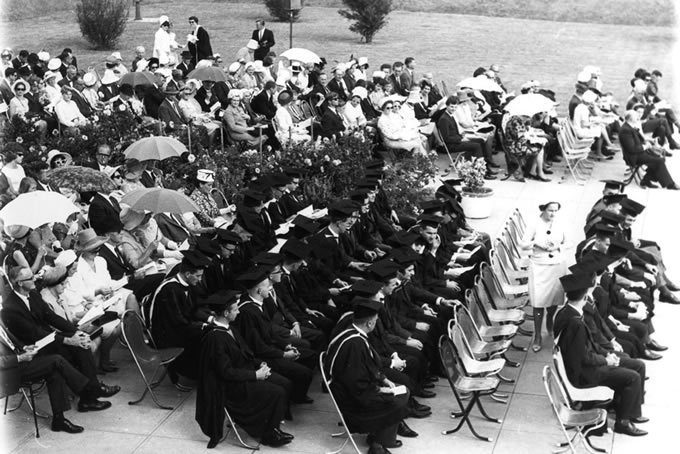
The graduation ceremony (held in 1966) was held out of doors, a feature of the open-air ceremony of the 1960s.
NSW –
is University of Wollongong good?
Amherst vs Williams: The Infamous Debate
For countless years, recent highschool graduates have looked to two of the top liberal arts colleges in the nation:
Amherst and Williams College!
Furthermore, debating where to spend their next four years!
As a result of the acceptance rate, financial aid, and graduation rate of both school’s, which are nearly indistinguishable, students often turn to ask:
Which school offers the better academic possibilities? Or the better housing? And lastly, which school holds the better student life experience?
Amherst or Williams?

Williams College – Jewish Religious Center. Williamstown, Massachusetts, USA. Architect: Herbert Newman Associates AIA, P.C., according to Williams College website.
While both schools offer intensive learning environments, Amherst allows students to explore their academic interests to a greater degree.

Amherst’s College Row, consisting of Williston, South, North, and Appleton halls, with Johnson Chapel at center.
Firstly, Amherst promotes a curriculum which promotes flexibility and independence. Other than a first year seminar, a standard practice across the nation, the school has no core requirements.
This allows students to take responsibility for their intellectual growth, prompting many to double major, without the hindrance of balancing required classes. Furthermore, Amherst is a member of the five college consortium, enabling students to explore classes across schools. Although Williams offers an open curriculum, the school still requires students to take three classes in the arts and humanities. Three in science and mathematics and three in social sciences.
Additionally, students become required to take one course to improve students’ ability to reason abstractly. Furthermore, one course that examines various cultures, and two writing intensive courses. These requirements often prevent students from being able to fully explore their academic interests. As a result of preventing them from taking classes that overlap with core requirements.
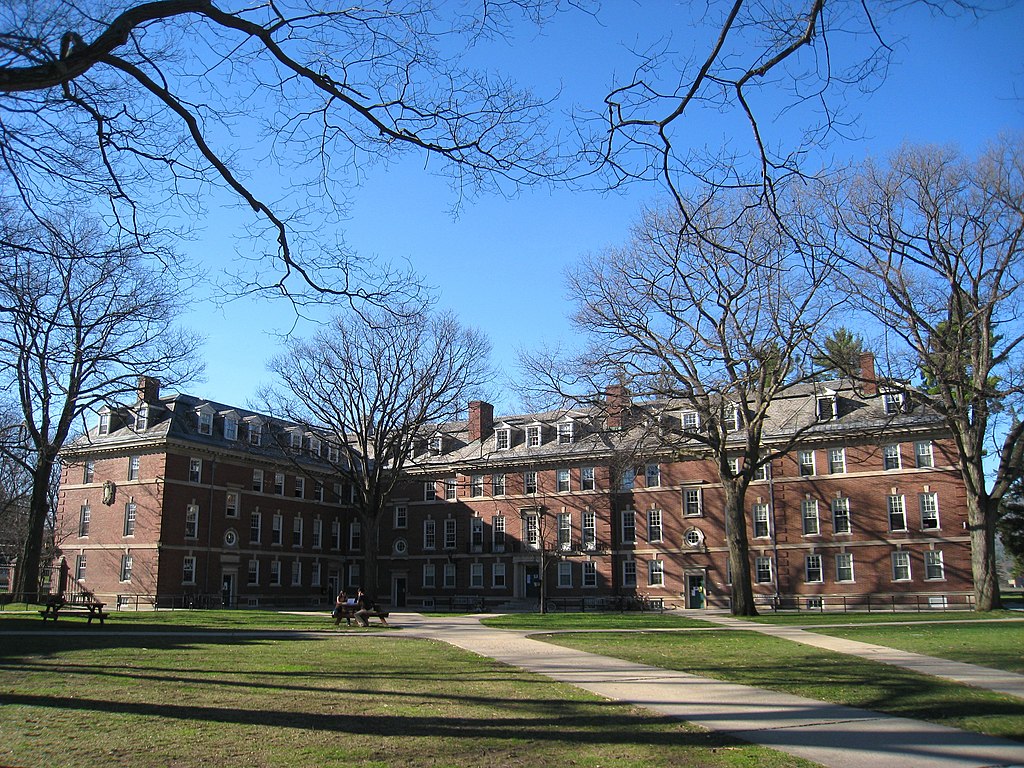
Williams College – Williams dormitory. Williamstown, Massachusetts, USA. Architects (Ralph Adams) Cram, Goodhue and Ferguson, according to Williams College website [1]. Daderot – Own work
In a similar manner, Amherst’s housing, particularly the first year housing, trumps that of Williams.

Rebellion Research’s CEO lecturing at Amherst College.
First-years at Amherst become housed around the main quad on campus, in newly renovated dorms. Oftentimes in the warmer months, first-years awaken to student’s playing music on the quad or the sounds of frisbee games.
Amherst College Dean talks with Rebellion Research
Babson College President talks with Rebellion Research
Barnard College President talks with Rebellion Research
Dartmouth College President talks with Rebellion Research
After a student’s first year, student’s are able to choose their dorm location for the following year. Students are able to enter the housing process with friends, often being able to live in the same dorm.
The majority of dorms on Amherst’s campus you will find centrally located. Moreover, with several of them air conditioned with elevators and lounges. In addition to newly renovated dorms, Amherst also boasts a new state of the art science center. Filled with labs and study spaces, the science center is an integral part of campus life.
Finally, Amherst offers a more enjoyable student life.

Amherst College “Lord Jeffs” vs Cornell ice hockey game on Beebe Lake, Ithaca (January 14, 1922).
The surrounding town offers a vast array of restaurants. In addition, direct access to larger grocery stores that fulfill the needs of college students. The surrounding area also provides access to an expansive campus farm. And a winding bike path, that allows students to explore the surrounding mountains and trails. This runs contrary to the surrounding town of Williams, which is significantly more rural and offers substantially less dining options.
The debate between Amherst and Williams will forever drive the competition between the schools. However, if you look past the similar numbers and statistics of each school. Lastly, Amherst clearly offers a better experience for incoming students.
Written by Amherst College Student Henry LeCates
Babson College President sits down with Rebellion Research
Dartmouth College President sits down with Rebellion Research

The Albany Lumber District was home to the largest lumber market in the nation in 1865.
Review of MIT Graduation 2023

A time-honored institution! Moreover globally known for its innovation and academic prowess! Thus attending the Massachusetts Institute of Technology (MIT) Graduation ceremony in 2023 was a huge thrill!

The most significant issue was the weather – the day was unseasonably hot. In addition, there was an acute shortage of shaded areas for guests. It seemed as though the event planners had not fully taken into account the sun’s intensity. And as a result, many of us needed to brave the scorching heat for the duration of the ceremony.

The choice of a YouTuber as the commencement speaker was initially an intriguing surprise!

Given MIT’s traditional leaning towards esteemed academicians, industry leaders, and luminaries in various fields. It seemed to be a nod towards the evolving landscape of influence and success. Furthermore, initially, seemed to offer a different perspective.

However, the speaker’s performance didn’t quite hit the mark. Despite his fame and popularity in the digital realm, his speech lacked the dynamism and inspiration typically expected in such an important occasion.
On a brighter note, the setting of the MIT campus provided an exceptional backdrop for the event!

The iconic architecture of MIT really served as majestic backdrop! Especially to this lifelong engineer! And of course the proud faces of the graduating students brought a palpable amount of excitement.
In conclusion, while the MIT Graduation 2023 included its drawbacks. Moreover, particularly in terms of weather management and the choice of speaker, it was a momentous occasion worthy of celebration. The stunning photographs taken will forever remind us of the pride and joy of the day.
is MIT ivy league?
University at Albany, SUNY – Wikipedia
is Umass Amherst good?
Yes, Umass Amherst stands as an excellent university.
Moreover, considered among the top 200 globally in almost every university ranking index.
Furthermore, the school offers a spectacular array of fields of study. From agriculture, to biotechnology to finance & accounting.
Furthermore, the university is a member of the Five College system. As a result, students enjoy access to Amherst College, a school that rivals Harvard & Princeton. In addition, to Smith, Mt. Holyoke & Hampshire College! (see: Five College Consortium – Wikipedia)

Rebellion Research CEO lecturing at UMass
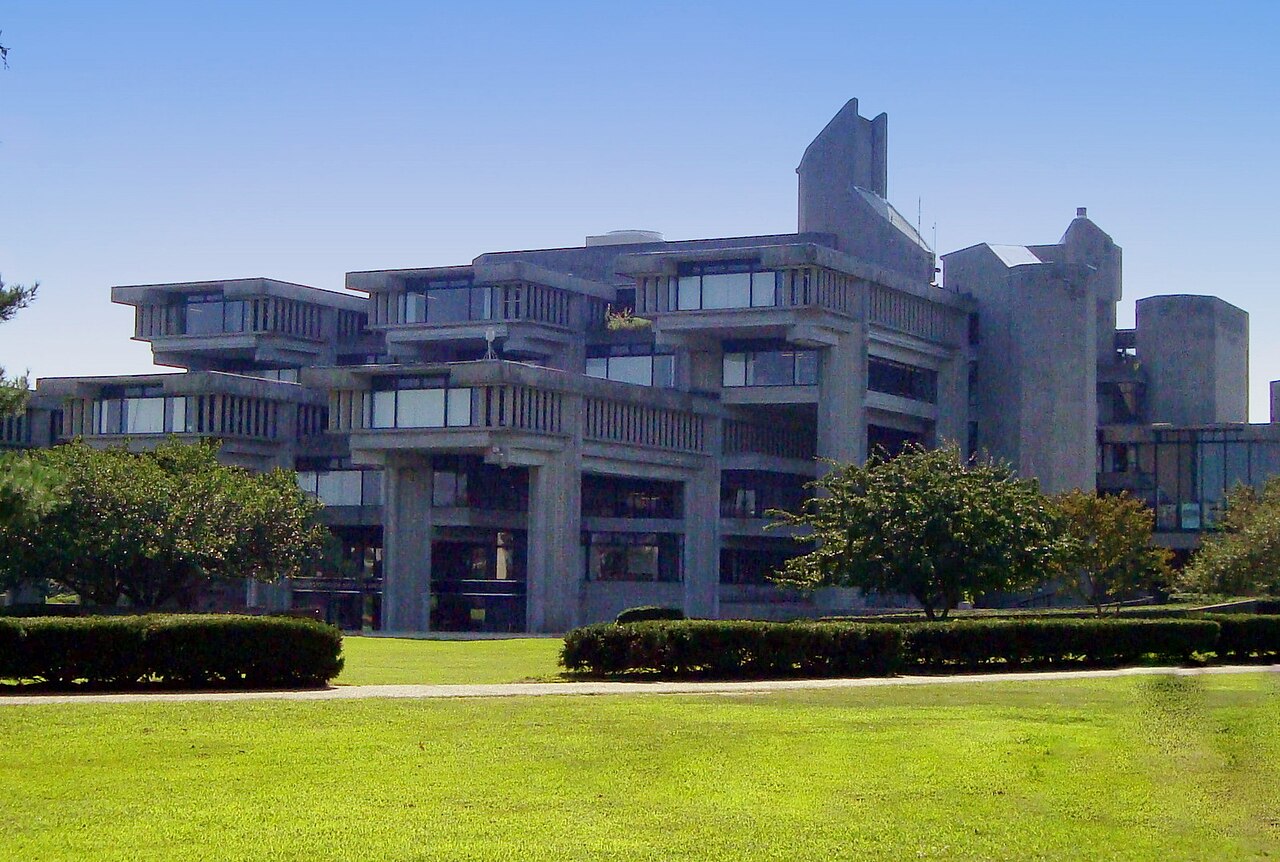
The Claire T. Carney Library

Cumnock Hall, on North Campus

Graça Machel (DHL), First Lady of South Africa
Amherst
Wikipedia
is Boston University good?

688 Boylston Street, the early home of the College of Liberal Arts, the precursor to the College of Arts & Sciences
Before we begin our University examination, let’s look at the story of a current BU student:
My journey at Boston University (BU) unfolded like a roller coaster ride!
is Vrije Universiteit Brussels good?
is Vrije Universiteit Brussels good?
Marked by dynamics of highs and lows. Ultimately forging a complex love-hate relationship with the institution and the city of Boston.
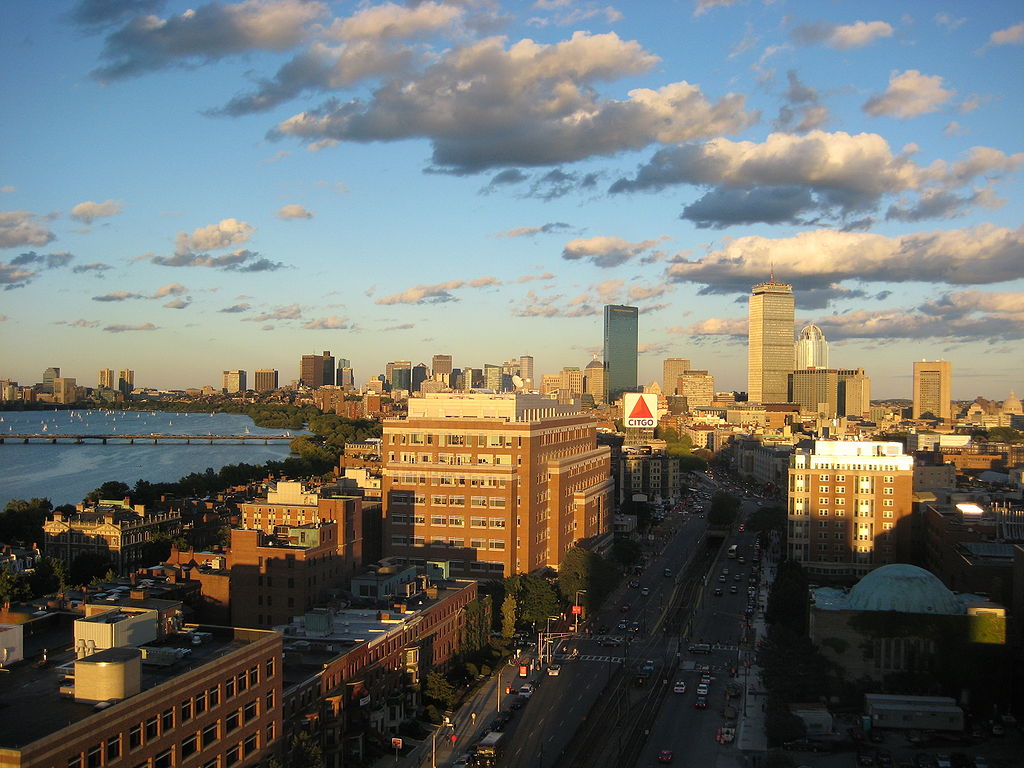
Boston University’s East Campus along Commonwealth Avenue
Upon my arrival at BU, initially excited by the anticipation of a curriculum tailored to my chosen concentrations. However, the structure of the business school led to disappointment. The design of the curriculum demanded we undertake a multitude of courses outside our major before specializing. Thus, leading me to partake in classes in fields like philosophical logic and global health.
While these courses were not my primary focus, they broadened my range of education and my intellectual curiosity.
Parallel to my academic journey, the city of Boston itself represented another aspect of my BU experience. Having become raised in the chaotic natures of global metropolises like New York, Shenzhen, and Taipei. As a result, Boston’s pace and quieter winters proved a challenging transition.
The early closing hours of shops and restaurants. Coupled with the city’s serene winters, proved a difficult transition for an individual like me!

The Talbot Building located on the medical campus houses the School of Public Health
Amidst these challenges, BU has been a transformative force, profoundly shaping my personality and career aspirations. This institution introduced me to an extraordinary array of individuals. Friends, mentors, and advisors who have become an integral part of my life. Their unwavering support and guidance have been instrumental in defining my outlook and preparing me for my professional career.
In retrospect, despite the rocky start and unexpected obstacles. My tenure at BU and life in Boston have been both enriching and rewarding. The downturns have become balanced by incredible relationships and personal growth. So, while my BU experience has indeed been a roller coaster ride. It’s been an exhilarating one that I would not trade for anything.
BU, or Boston University, is a private research university located in Boston, Massachusetts.
Let’s discuss the academic prestige of BU. Moreover, the cost of living in Boston, STEM and liberal arts offerings. In addition, the history of the school. Academic standards for acceptance, the admissions process. Additionally, expected GPA and SAT scores for admission, teacher faculty ratio, and the cost of attending the university.
Academic Prestige?
Boston University, considered one of the top universities in the United States. And particularly renowned for its programs in business, communications, and the arts. The university has a strong reputation for research excellence and innovation. And it has produced numerous Nobel laureates and other distinguished scholars. BU is also well-known for its commitment to diversity and inclusion, with a diverse student body and faculty.

Inside Agganis Arena after a hockey game
Cost of Living?
The cost of living in Boston can become relatively high compared to other cities in the United States. However, still generally more affordable than other major cities like New York or San Francisco. Housing and dining costs can be significant expenses for students. However, the university offers a range of affordable housing options for students, including dormitories and shared apartments. Additionally, there are many student discounts available for transportation and entertainment, which can help to offset the cost of living.
STEM and Liberal Arts Offerings?
Boston University offers a wide range of STEM and liberal arts programs!
is IIM Ahmedabad good?
Including majors in engineering, computer science, mathematics, biology, history, literature, philosophy, and many other fields. The university also offers a variety of interdisciplinary programs, such as the Global Health program and the Digital Media program.

Martin Luther King Jr. earned a PhD from BU in 1955
History of the School?
Boston University founded in 1839 as a Methodist seminary. However, it has since grown into a major research university with a diverse range of academic programs. Over the years, the university has undergone many changes and transformations. But it has remained committed to its mission of providing a high-quality education to students from all backgrounds.
BU Known for?
Known for its research excellence and innovation, particularly in the fields of business, communications, and the arts.
Also known for its commitment to diversity and inclusion. With a diverse student body and faculty. Additionally, BU, known for its beautiful campus and its location in the heart of Boston. Moreover, a major cultural and intellectual hub in the United States. I’ve driven through the campus one hundred times. Its great!
Academic Standards for Acceptance: Boston University has high academic standards for acceptance, particularly for its most competitive programs. The university requires students to have a strong academic record, with an average GPA of around 3.5. Additionally, students become required to submit standardized test scores, such as the SAT or ACT. BU also considers other factors such as extracurricular activities and letters of recommendation.
Admissions Process:?
Moreover, the admissions process at Boston University is highly competitive. With thousands of students vying for a limited number of spots each year. Students must submit an application, transcripts, test scores, and letters of recommendation. The admissions process is holistic. As a result, means that Boston University considers a range of factors when making decisions. Including academic performance, extracurricular activities, community service, and personal characteristics.
Expected GPA and SAT Score for Admission?
Boston University typically requires students to have an average GPA of around 3.5 or higher. Although the exact GPA requirements may vary depending on the program and level of study. The university also requires students to submit standardized test scores, with an average SAT score of around 1400 or higher.
Teacher Faculty Ratio?
Boston University has a relatively low teacher faculty ratio, with a ratio of about 10:1. This means that students have the opportunity to work closely with faculty members. Experts in their fields, and students receive individualized attention and support.
The cost of attending Boston University as an undergraduate can vary depending on a number of factors. Such as whether you are an in-state or out-of-state student. Whether you live on or off campus, and what program you become enrolled in. However, here are some general estimates for the cost of attendance for the 2022-2023 academic year:
Tuition and Fees:
- Tuition: $58,560 per year
- Fees: $1,188 per year
Room and Board:
- On-campus housing: $11,480-$16,190 per year, depending on the dormitory and meal plan chosen
- Off-campus housing: $10,600-$16,800 per year, depending on the location and type of housing
Now let’s look at two of the best high schools in America! Trinity School NYC & Phillips Exeter! Moreover, through the eyes of current students and recent graduates!
A Critical Look At NYC’s Legendary Trinity School by Current Students & Recent Graduates!

Trinity’s arguably most famous alumnus, Truman Capote, photographed by Carl Van Vechten, 1948.
Trinity’s Computer Science (CS) and Robotics programs need a revamp. Moreover, there is one track of CS classes so there is only one class you can take a year — not like science electives etc, and I only know one person in the whole school who got a grade below an A in the class. This is because the CS curriculum is not challenging nor rigorous. Trinity needs more CS classes, teachers, and a better curriculum if they truly want to educate their students well.
Separately, there are only two CS classrooms and they are the most unattractive classrooms ever. The CS department office is basically a closet. This shows how unimportant the school considers the CS department.
The Trinity robotics team is also not taken seriously!

The Upper West Side and Central Park as seen from Top of the Rock observatory at Rockefeller Center. In the background to the west are the Hudson River and the George Washington Bridge.
The team meets twice a week — not enough to actually make anything good — and the coach is less of a coach and more of a chaperone. As a former member of the team I can attest that the coach mostly sat on his laptop scrolling through Amazon.
This meant that all the coaching and organization was left to the one senior geek kid who knew a bunch about robotics through outside of school programs. Of course, this one senior is not an equipped coach and basically spent all his time doing everything robotics related because no one else was good enough or could receive the proper education to become good at robotics. Moreover, while our school may occasionally win awards at robotics tournaments, that is because we participate in the biggest joke of a competition. Our peer institutions — Horace Mann and Dalton — all have serious robotics and CS programs, have teams and coaches that are actually good and compete at a more advanced level.
Trinity’s English, History, and language teaching is some of the best in the country!
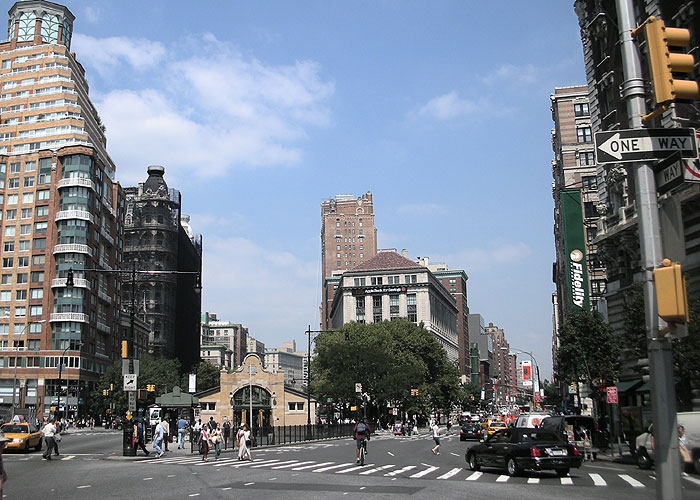
Verdi Square at the intersection of Broadway and Amsterdam Avenue. The 72nd Street subway station on the 1, 2, and 3 trains is in the center of the square.
Furthermore, I don’t necessarily expect the school’s math, science, and CS curricula to be at that level. However, it’s undeniable that STEM, especially CS, is becoming increasingly important in a tech-driven world. I’d even go as far as to suggest that Trinity should require students to take 1-2 years of CS. Of course, they should greatly expand the CS department to accommodate that.
For instance, the school could shift the sophomore year CS course to freshman year (I did not find the freshman year courses, Design Thinking and Digital Storytelling, to be especially meaningful) and then open up multiple electives in junior and senior years, similar to what the History and English departments offer. I think the Math curriculum could also have more advanced course offerings in senior year, such as Multivariable Calculus, a fixed Linear Algebra course, and a rigorous proof-based course (in addition to Topics in Mathematics, which is a great elective.)
With all that said, I understand that teacher retention is especially tough in STEM (as evident from the number of STEM teachers leaving this past year) and I think the school should focus on addressing that issue.
Increased salaries for teachers and more investment in STEM facilities (as above said, better CS rooms) could go a long way!
Trinity truly does a phenomenal job in the humanities — I see that especially now as I take humanities courses at Columbia — and the school could be even more impressive if its STEM department could offer a similarly formative experience for Trinity students, especially those who don’t consider themselves STEM students when they enter Trinity. I know that I was very much a math kid when I came into Trinity in seventh grade, and my high school experience truly expanded my interests into English, history, debate, journalism, and more.
Student-teacher relations are great (one of the best benefits of a Trinity education.) I greatly appreciate all that the school has given me.
I think that Trinity’s STEM departments are substantially weaker than their excellent humanities counterparts. My largest issue with Trinity’s STEM classes, definitely Trinity’s problem-based math curriculum. The math department overwhelmingly supports the problem-based approach, and they only hire teachers who support the problem-based approach, leading to comparatively underqualified math teachers.
When my entire math class was complaining about the curriculum during our class last year, my teacher, who has been at Trinity longer than anyone else in the math department, responded with “stop complaining, it won’t change anyway,” which I find very telling!
While the problem-based curriculum is a good idea in theory, Trinity’s ‘problem packets’ became poorly crafted and often lead kids to be more confused than enlightened. PBL (problem based learning) discourages students more than it creates a lifelong passion for math.
best High Schools in NYC??
To speak from personal experience, math was my favorite subject before attending Trinity, and I proudly considered myself a ‘math kid.’ Within two years of entering Trinity, and still to date, I see math as one of my weaker subjects and have little to no interest in pursuing a career in math or even taking any math classes in college.
PBL, predicated on students teaching themselves math with guidance from teachers. Trinity teachers assign five two-sentence questions for homework, all of which require formulas and logic not yet derived or explained in class. Students work on the problems for hours every night, trying to achieve enlightenment. Unfortunately, this goal, usually not becomes achieved.
Aside from students not having hours to spend on math homework every night, students will not blindly persevere to throw different math tools at the page in the hope of getting a correct answer.
Realistically, students will instead give up on the homework and look up answers, which is wholly detrimental to the learning process.
PBL diminishes the responsibility of teachers to teach and instead places that responsibility on the students themselves. Our math classes are incredibly repetitive. We enter the classroom to review the previous night’s homework, and continue by working on new problems in groups. That lesson plan does not include any time for the teacher to instruct students; rather, the vast majority of teachers’ responsibilities are moderating discussions among the class and assigning students to present certain problems.
A significant amount of the problems with PBL could become mitigated if teachers intervened to explain concepts when the class clearly stands highly confused. However, that has largely not taken place in my experience. In place of this teaching, I have heard more iterations of ‘reconsider your givens’ and ‘try that problem again’ than any human should have to endure.
Somewhere between one third and one half of the students in Trinity’s honors track at the beginning of high school have elected to move to the regular math track.
As my friends, assorted acquaintances, and I often say, the goal of Trinity’s math department is to decrease enrollment in honors classes and to destroy everyone’s passion for mathematics.
Moreover, the vast majority of the students dislike the PBL curriculum. Even if I grant PBL the greatest amount of benefit of the doubt, it only works if you have phenomenal math teachers, of which Trinity has very few.
There are only a few ways to succeed in the Trinity PBL curriculum (this especially applies to the honors curriculum):
- Be a math whiz compared to your peers. This is true for 10-20% of the honors classes.
- Get an out of school tutor. This is expensive, an unfair burden to put on families financially, and time consuming. Also, many students get tutors and see their grades stay stagnant.
- Spend all of your free periods in the math lab (where students can go to get help). Many students do not have the time for this because of meetings with other teachers and having full schedules. There’s also the distinct possibility that they want to hang out with their friends during their free periods, because they want to enjoy high school. Even if you do spend a ridiculous amount of time in the math lab, many of the teachers are unhelpful. My freshman year math teacher was probably the worst teacher I have ever had. Convinced that I “gave up on problems too easily.” Even when I would ask for help on problems that I had been struggling with for many minutes, sometimes hours, she would just reply “reconsider your givens.” Even worse, she would actively stop other teachers from helping me whenever she saw me talking to them, telling them “He gives up too easily, let him struggle with it.” This both painted me in a negative light to the other math department faculty and stopped me from learning.
I’ll add some quotes I’ve heard from some students at Trinity which reflect the student body sentiment about it:
“PBL is like taking a textbook, ripping out the explanations, ripping out the answers, then ripping out the problems and jumbling them randomly.”
Once in sophomore year math class, we brought up some concerns about the curriculum to our math teacher. She responded, “I’ve found that Trinity students like to be spoon fed.” One of my classmates replied, “there is a big difference between being spoon fed and starving.”
I agree with statements from people above about Trinity’s STEM departments being weak. I think there are two reasons for this:
- The people in the administration almost entirely come from humanities backgrounds, and they ultimately have final say in the hiring process. They need someone in the administration with more STEM expertise in order to choose better faculty.
- My History teacher last year, who is one of the deans, told us that they pay humanities teachers the same amount as they pay the STEM teachers. This is problematic because qualified STEM teachers are harder to come by than qualified humanities teachers. This is because the most qualified STEM major graduates have better job opportunities, whereas many of the most qualified humanities major graduates do not. The salaries for teachers should reflect supply and demand, in order to hire better stem teachers. As the teacher himself said “we humanities teachers come a dime a dozen.”
Moreover, I also think that the whole club system needs to become revisited. A couple changes need implementation, in my opinion:
- They need to hire someone full-time to solely look over clubs. ‘Right now, two administrative assistants supervise the clubs. They both have many other responsibilities. As a result, clubs often become put on the back burner. As a result, they become incentivized to put policies in place that reduce their workload but are not necessarily good for the clubs. Because the Parliamentary Debate team had some administrative issues, Trinity decided to stop the parliamentary debate team from competing for the first quarter of this academic year. Although this has certainly reduced the administration’s workload. Thus, several dozen debaters have become frustrated that they cannot attend tournaments.
Furthermore, freshmen and sophomores find themselves disincentivized from joining a team if they cannot compete for it.
- They need to hire someone full-time to be the director of all forensic teams (like Parliamentary Debate, Model UN, Public Forum Debate, Model Congress, etc). For many students in the Upper School, forensic teams are as serious or more serious than a sport in terms of time-commitment. Many of Trinity’s peer institutions have such a position, yet Trinity does not. For these clubs, the responsibility largely rests on the student leaders, who have to manage organizational chaos. In some cases, the faculty advisor can help take care of some of the administrative aspects, but most of the time the faculty advisor does not have the time to do so.
- They need to increase pay for teachers who are faculty advisors and allow forensic teams to hire coaches.
- Forensic teams need coaches. Almost all participants in Trinity forensic teams are either self-taught or taught by student leaders who do not have the qualifications to be educators.
- Forensic teams need faculty advisors in order to have chaperones for competitions. Trinity’s current overtime pay for faculty advisors is not high enough, so many teachers reject the opportunity to be a faculty advisor. As a result, many forensic teams cannot send students to tournaments, robbing them of an amazing extracurricular opportunity. Raising the overtime pay would incentivize more teachers to be faculty advisors.
Trinity Vs Horace Mann: Read our analysis!
- Forensics – Trinity is lacking when it comes to support for forensics, compared to other schools like Regis with its debate team, and Dalton with its Model UN team. In its current form, Trinity essentially requires students to bear the brunt of organizational work and costs. This is an unfair burden to place on students who are already so busy, and it unfairly limits forensics to kids with the resources to do so. The burden means that a lot of time becomes wasted by Trinity students. As they have to take lots of time to organize and teach themselves as well as struggle to find faculty advisors. The cost of going to tournaments can already be financially challenging for some students, and this only further increases the cost.
- PBL. Most of my complaints have already become said. And it is a terrible system which disadvantages almost all Trinity students, robbing them of their time and a good STEM education.
- Club Support. Trinity needs a more robust club system, because we are severely lacking compared to our peer institutions. It is an absolute organizational mess, and the administration can feel hostile and are rarely helpful when it comes to the club dynamics, putting unnecessary burdens on club leaders.
is Phillips Exeter worth it?
During my time at Phillips Exeter. I have become exposed to countless new cultures, religions, customs, and people from across the world. It is in stark contrast to the generally homogenous community of the public high school I attended before coming to Phillips Exeter!
I can say with certainty that never before coming to Phillips Exeter did I sit around a Harkness table. With people from up to four different continents at the same time. Furthermore, discuss the pressing issues that our society faces today.
Phililips Exeter broadened my horizons greatly. In addition allowed for me to obtain a greater understanding of the world I live in.
As the math problems I faced in classes became increasingly difficult throughout my highschool years, I looked for help. I sought help from teachers, textbooks, online learning services, parents, as well as peers. Having a classmate or older student explain complex problems to me almost always yielded a stronger understanding than any of the other aforementioned methods.
For this reason, when I became given the opportunity to become a math peer tutor in my freshman year of high school. I graciously accepted. It began a bit rocky! As my level of understanding in certain areas was often less than or equal to the students who I was trying to help. However, this led me to seek a deeper understanding in all the topics I learned about. As a result, I was always able to assist those who came to me. It drove me to dig deeper. Furthermore, answer the “why” of every problem I encountered. Rather than just memorizing a method to get the right answer. This skill has served me well in many facets.
How hard is it to get into Phillips Exeter Academy?

View from tower of Phillips Church, Exeter, New Hampshire. At right is the 3rd Academy Building, designed by the Boston architectural firm of Peabody & Stearns. Built to replace the 2nd Academy Building, which burned on December 20, 1870. And would itself burn on July 4, 1914. In the distance is the Squamscott River.
Phillips Exeter Academy, located in Exeter, New Hampshire, is a prestigious, highly selective, co-educational independent boarding school. Widely regarded as one of the most academically rigorous and competitive schools in the United States. Admission to Phillips Exeter Academy is a challenging process that requires dedication and effort from applicants.
Let’s explore the application process! Furthermore, the factors that the school considers when making admission decisions. Additionally, the level of difficulty of getting into Phillips Exeter Academy.
The application process for Phillips Exeter Academy is comprehensive and rigorous, involving multiple stages. The first stage of the process is the submission of the application. Moreover, which includes essays, transcripts, standardized test scores, recommendations from teachers, and an interview. Thus, the application process is highly competitive. Furthermore, with the school receiving thousands of applications every year. And as a result, only admitting a fraction of the applicants.

When making admission decisions, Phillips Exeter Academy considers a range of factors. Including academic achievement, extracurricular activities, character, and potential for leadership! The school looks for students who have demonstrated exceptional academic achievement. Additionally, a commitment to intellectual curiosity and academic rigor. Additionally, the school values students who have shown leadership potential. Moreover, through their involvement in extracurricular activities, community service, and other forms of engagement.
The level of difficulty of getting into Phillips Exeter Academy is high, with an acceptance rate of around 15%. As a result, means that out of thousands of applicants, only a small fraction will become admitted. The school is highly selective! And looks for students who are not only academically strong. However, also demonstrate leadership potential, intellectual curiosity, and a commitment to serving their communities.

E. Chickering & Co. – http://lcweb2.loc.gov/cgi-bin/query/I?
The school’s high level of academic rigor and selectivity makes it an attractive option! Especially for students who are seeking a challenging and rewarding academic experience. However, it also means that the application process is highly competitive. And applicants need to become well-prepared and dedicated to their studies and extracurricular activities.
In conclusion, getting into Phillips Exeter Academy is a challenging process that requires dedication, effort, and commitment from applicants. The school is highly selective and values academic achievement, leadership potential, and character.

Abraham Lincoln – http://memory.loc.gov/mss/mal/mal3/434/4340100/001.jpg
The application process is comprehensive and rigorous, involving multiple stages and requiring applicants to demonstrate their abilities and potential. While getting into Phillips Exeter Academy is challenging. It is also a highly rewarding experience for students who are seeking an academically rigorous and stimulating environment.
How hard is it to get into Phillips Exeter Academy?
What does it mean to be an ‘Exonian’ or Phillips Exeter’s best students?
What happened at Phillips Exeter?
Culture is a complex anthropological concept. John Monaghan, in his book Social and Cultural Anthropology: a Very Short Introduction, writes that “there have probably been more anthropological definitions of ‘culture’ than there have been anthropologists.” From this, it is clear that even at the scholarly level, there is difficulty nailing down an all-encompassing definition for the term.
Evidently, there will exist similarities between different definitions of culture. Which can become used to generally characterize what is, and what is not culture.
It is through these similarities that a working definition for culture will become synthesized. And used to analyze the origins of cultural identity at Phillips Exeter Academy.
Also in Social and Cultural Anthropology: a Very Short Introduction, Monaghan says that:
“however we define culture, most anthropologists agree that it has to do with those aspects of human cognition and activity that are derived from what we learn as members of society, keeping in mind that one learns a great deal that one is never explicitly taught.”
Here, the insinuation is that culture is a summation of thoughts and actions learned over time. And also learned indirectly, rather than taught in something akin to a classroom environment. The idea of learning culture is studied more in depth by Katherine Dettwyler. In Cultural Anthropology and Human Experience: The Feast of Life.
She says that culture can be simplified into three categories:
Firstly, what’s inside people’s heads. Secondly, what people do, and what people make!
Within the first category, she emphasizes that culture becomes learned, shared, and patterned!
Moreover, it becomes learned because culture isn’t steadfast, it is constantly changing. Culture, shared since individuals will have overlap in terms of the beliefs, knowledge. In addition, attitudes which help them identify with a particular group. Culture becomes patterned because:
“we find organized systems of thought and belief, patterns of thinking and systems of knowledge, not just a random hodgepodge of factoids and unrelated ideas.” Specifically, it is this pattern of ideas and factoids that gives culture significance.
Comparing the two expanded definitions of culture from both Monaghan and Dettwyler, a few concepts are clear. Culture is not instantaneous.
That is to say, it takes time to develop. Also, there is no explicit teaching. However, rather ingrained into the individual by the society in which they exist. Logically, the next question is how exactly culture becomes ‘ingrained’ into an individual.
In the book The Best of The Best, the author Ruben Gatzambe-Fernandez explores the development of cultural identities at “Weston”, a pseudonym for the elite boarding school Phillips Exeter Academy, or “Exeter”. He evaluates admissions, language, and framing, in his consideration of how a student comes to identify themselves with Exeter, which is most often through the use of the term “Exonian”.
The first step towards a student identifying themselves as an Exonian, and thus a member of the group of people which form the culture at Phillips Exeter, is the admissions process.
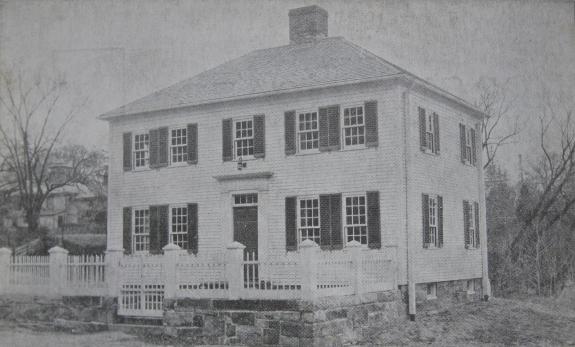
Students, not made aware of the explicit reason that they become admitted to Exeter when they receive notice of admission. The effects of this are twofold. One, it disbands the possibility of a student who did not become admitted comparing themselves to those who were with specific evidence as to why.
Secondly, “it is the initial step toward internalizing the notion that, while ‘Weston is not for everybody,’ it is certainly for them.” The offer of admission confirms this notion in the student’s mind. It is a rite of passage. Meaning it represents a passing from one world to another, in this case, the transition into Exeter from a different school environment.
Within the broad category of rites of passage, there exists a subgroup of transition rites, exemplified by the likes of betrothal, or in this case, initiation.
After students receive their admissions letter, students reflect on why they belong at Exeter. Jack Mitchell, one of Fernandez’ interviewees, attributes his acceptance to his willingness to have meaningful discussions. In his admissions interview, he recalls saying:
“I feel that I always have things to say, and if I don’t have things to say, I’m interested in what someone else has to say.”

As Fernandez mentions often, discussion skills are crucial to becoming Exonian. And Jack is trying to show that he has what it takes.
When Jack is explaining why he believes he belongs at Exeter, he is legitimizing his presence there.
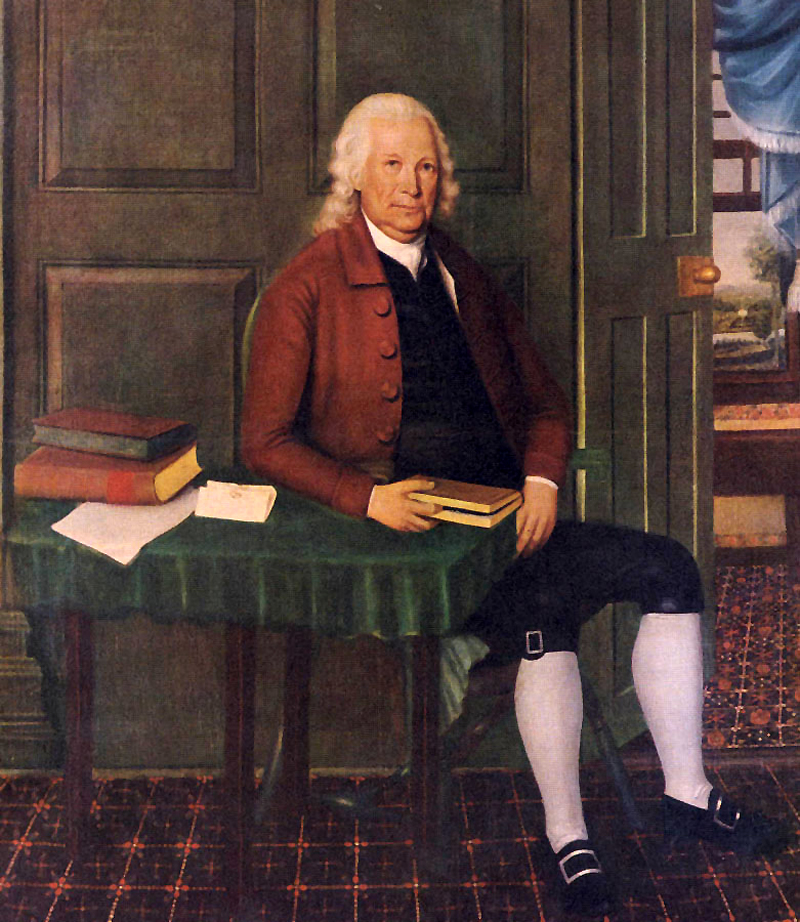
The term Legitimation, as defined in Peter Berger’s The Social Construction of Reality is “this process of ‘explaining’ and justifying.” In this instance, legitimation takes the form of spoken language, and allows Jack to rationalize his place at Exeter.
is University of Cape Town a good school?
He reasons that because he is good at discussion, one of the key parts of becoming an Exonian according to many students interviewed by Fernandez, he deserves to be at Exeter.
Post admission, and the legitimation of their own personal place in the ranks of Exeter students, individuals continue to construct their cultural identity through language. “Language might be called the domain of articulations … Language can also be compared with a sheet of paper: thought is the front and the sound the back; one cannot cut the front without cutting the back at the same time.”
Furthermore, Language becomes connected to thoughts. Which are key to internalizing a particular cultural identity. The word that Fernandez found most intertwined to the cultural identity of Exeter students is “smart”. A good way to see this becomes through the constructing of boundaries between groups on campus. Who become considered “smart”, and those considered not. “Students use the category of PG as a way to distinguish and draw boundaries around themselves as Westonians who are smart and work hard.” The word smart becomes associated with exclusively students who are not of the PG category.
Since most students view PGs as “Weston students who are not Westonians”. As a result, distinguishing themselves from PGs thus makes a student more “Westonian”.

In essence, language becomes used to reinforce their cultural identity as Westonian. As a result of separating themselves from the group considered not to be. In addition to language, there is another underlying anthropological concept in this method of cultural identification. It is framing. Frames “are mental structures that shape the way we see the world.” An example of a frame would be that Ethan is a PG, so Ethan is dumb. It allows individuals to reinforce their own ideas about culture.
Culture has no unilateral definition.


However, the case study of Phillips Exeter provides great insight into what exactly culture has manifest itself into. Additionally how it becomes constructed. Furthermore, students at Exeter begin as outsiders. Thus, begin the creation of their cultural identity as Exonians upon acceptance to the institution. From there, they legitimize their presence.
In conclusion, language structures to separate themselves from those considered not Exonian. And thus, more closely associating themselves with the term. Furthermore, it is a process that takes time, as culture is not instantaneous. Lastly, through what they think, what they do, and what they make. Lastly, Exeter students slowly come to associate themselves with the cultural identity of an Exeter student, being Exonian.
is Rutgers good?
is Rutgers good?

Rebellion Research CEO posing with students at Rutgers University, after giving his lecture.
A Comprehensive Overview of Rutgers, The State University of New Jersey
Established in 1766, Rutgers, The State University of New Jersey, is one of the oldest and most prestigious higher education institutions in the United States.
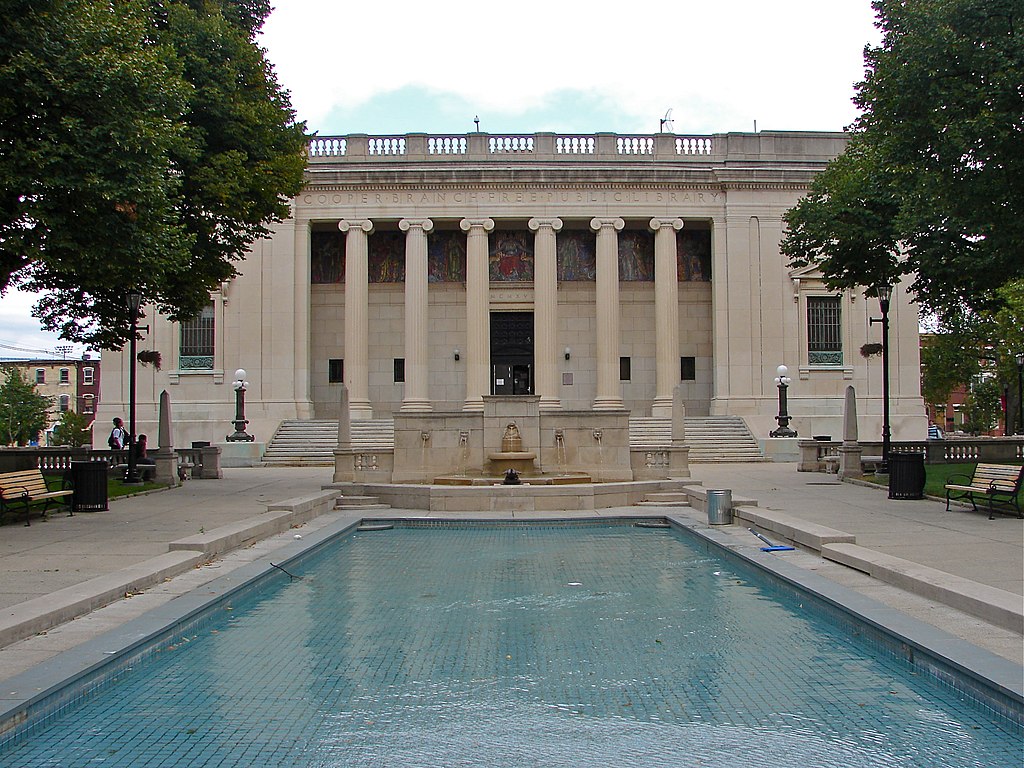
The Digital Studies Center and Johnson Park at Rutgers University.
Originally chartered as Queen’s College, Rutgers has evolved over the centuries into a leading public research university, known for its tradition of academic excellence and its commitment to public service.

Rebellion Research CEO teaching at Rutgers University.
Rutgers is a significant contributor to the educational, cultural, and economic life of the state and the nation. Its prestige extends both nationally and internationally, thanks to its extensive range of programs, diverse student body, accomplished faculty, and notable alumni.

We asked one recent graduate who went on to study for a Master’s at UC Berkeley to reflect on their experience:
“Thru it’s proximity, Rutgers is known for offering a lot of opportunities in the nearby metropolitan areas. What’s less well known are the many global connections and opportunities afforded by Rutgers.”
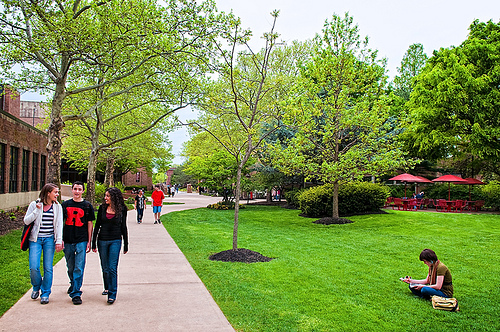
Known for its comprehensive offerings across various disciplines, Rutgers has particularly strong programs in Business, Engineering, Nursing, and English. Its School of Environmental and Biological Sciences is also highly regarded for its innovative research and engagement with contemporary environmental issues.

STEM!
Oil painting of Revolutionary War hero and philanthropist, Colonel Henry Rutgers (1745–1830), early benefactor and namesake of Rutgers University.
Henry Inman – New-York Historical Society
In the realm of STEM (Science, Technology, Engineering, and Mathematics), Rutgers excels with a variety of strong programs. The School of Engineering offers undergraduate and graduate degrees in several disciplines, including Biomedical Engineering, Civil and Environmental Engineering, and Electrical and Computer Engineering.
The School of Arts and Sciences, on the other hand, hosts various STEM-related departments, such as Physics and Astronomy, Biological Sciences, Mathematics, and Computer Science.

The Rutgers College football team in 1882.
The cost of attending Rutgers varies depending on the specific school, degree level, and residency status. As a public institution, it offers lower tuition rates for New Jersey residents compared to out-of-state students. However, it provides a wide range of financial aid opportunities to assist students with their educational expenses.

Voorhees Mall, Rutgers University
The cost of living in New Jersey stands higher compared to the national average. As a result of largely becoming driven by housing costs.
However, the actual cost can vary significantly depending on the specific region of the state and the lifestyle of the individual. Nevertheless, with its proximity to major urban centers like New York City and Philadelphia, the cultural and professional opportunities available to Rutgers students are immense.
Rutgers enjoys a strong reputation as one of the leading public universities in the United States!

Senator Elizabeth Warren received her JD from Rutgers Law School on the Newark campus in 1976.
United States Senate –
It consistently ranks among the top universities in national and global rankings, reflecting its strength in teaching, research, and community engagement. Its faculty includes numerous distinguished scholars, and its research contributes significantly to advancements in various fields.

The admissions process at Rutgers is highly competitive!

Applicants need to submit their high school transcripts, SAT or ACT scores, and letters of recommendation. The university considers the rigor of high school coursework, grades, standardized test scores, extracurricular activities, and the personal essay in its admissions decisions. Certain competitive programs may have additional requirements or higher standards for admission.

Photograph of the Nielson Campus of Rutgers College viewed from Hamilton Street or in front of New Jersey Hall (Agricultural Experiment Station), circa 1919-1920. This section of campus presently called Voorhees Mall on the College Avenue Campus of Rutgers. In addition, the State University of New Jersey in New Brunswick. Buildings (left to right): New Jersey Hall (staircase only), Hertzog Hall and Suydam Hall (obscured by trees, New Brunswick Theological Seminary campus), Milledoler Hall, Miller Hall, and the Delta Upsilon fraternity house. Moreover, other information, this image from a book located on Google Books at:
Let’s hear from a recent graduate of Rutgers:

While I understand it isn’t easy to delve into details as the university is very varied, my two inputs are:
- My personal experience with the university, and I have seen the same happening with fellow students, is that the organization is exceptionally compassionate towards students. They go above and beyond. Thus, to ensure that all our needs become met. Additionally, that no constraints obstruct us from focussing solely on studies. All the different teams, be it legal, medical, counseling, or even pantry, are not just there for the sake of it but are responsive and helpful when it comes to any support that the students may need. They have thought of literally everything that the students may require and have made them available for the students. Maybe all the universities do this for their students, but I think it may still be worth applauding!

In conclusion, Rutgers, The State University of New Jersey, stands as a premier institution of higher learning. Lastly, its long history, comprehensive academic offerings, dedication to research, in addition, robust community engagement make it a valuable choice for students from all walks of life. Moreoer, its strong reputation, combined with the opportunities afforded by its location, solidifies its position as a leader in public higher education.

Rebellion Research CEO posing with students after giving a lecture at Rutgers University.
is University of Wollongong good?
is University of Wollongong good?
Phillips Exeter Academy | Exeter
is University of Wollongong good?
is University of Wollongong good?
is University of Wollongong good?
is University of Wollongong good?
How to Get Into Phillips Exeter Academy – Test Innovators
is University of Wollongong good?
is University of Wollongong good?
Phillips Exeter Academy – Acceptance Rate, Tuition, Ranking, and More – collegegazette.com
is University of Tsukuba good? (rebellionresearch.com)
Most Selective Boarding Schools in America (businessinsider.com)
is University of Auckland good? (rebellionresearch.com)
Smith College | Knowledge. Generosity. Community.
is Southeast University a good school? – Rebellion Research
2022-2023 Best Colleges | College Rankings and Data | US News Education
Compare Campus and Online Colleges,
is South China University of Technology good? (rebellionresearch.com)
Universities & Career Schools | CompareTopSchools.com
is Trinity College Dublin good? (rebellionresearch.com)
is HEC Paris a good school? (rebellionresearch.com)
2023 College Rankings – Niche
is Nankai a good university? (rebellionresearch.com)
Best Colleges 2023 | College Ranking List | The Princeton Review
is Jilin University good? (rebellionresearch.com)
is Hong Kong Polytechnic University good? (rebellionresearch.com)
Forbes America’s Top Colleges List 2022
is University of Cincinnati a good school? (rebellionresearch.com)
is Northeastern University a good school? (rebellionresearch.com)
University of Massachusetts-Amherst – Tuition & Fees, Net Price (collegetuitioncompare.com)
is University of Reading good? (rebellionresearch.com)
is Maastricht University good? (rebellionresearch.com)
is University of Wollongong good?
is University of Wollongong good?
U Miami a good school? (rebellionresearch.com)
is University of Wollongong good?
is University of Wollongong good?
UCF a good school? (rebellionresearch.com)
is University of Wollongong good?
is University of Wollongong good?
Top 10 Universities In The World (rebellionresearch.com)
is University of Wollongong good?
is University of Wollongong good?
University of Genoa a good school? (rebellionresearch.com)
is University of Wollongong good?
is University of Wollongong good?
Colorado State University a good school? (rebellionresearch.com)
is University of Wollongong good?
is University of Wollongong good?
MWikipedia
is University of Wollongong good?
is University of Wollongong good?
Cost of Living (numbeo.com)
is University of Wollongong good?
is University of Wollongong good?
Home | U.S. Department of Education
is University of Wollongong good?
is University of Wollongong good?
